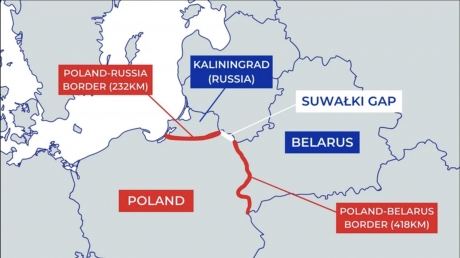Poland is poised to take on a significant role within the European Union as it prepares to assume the rotating presidency of the Council of the European Union starting January 1, 2025. This development comes at a crucial juncture marked by heightened geopolitical uncertainties and challenges. With a clear vision in mind, Poland aims to leverage its six-month presidency to prioritize and advance the concept of EU security from a multi-dimensional perspective.
In light of the evolving security landscape in Europe and beyond, Poland’s presidency will focus on bolstering security measures across various domains. This includes enhancing defense capabilities, strengthening cybersecurity frameworks, and fostering greater cooperation among EU member states to address common security threats. By championing a comprehensive approach to security, Poland seeks to ensure the safety and well-being of all EU citizens while safeguarding the Union’s interests on the global stage.
Central to Poland’s presidency agenda is the commitment to upholding the values of democracy, rule of law, and human rights within the EU framework. Recognizing the interconnectedness of security and fundamental freedoms, Poland aims to promote a cohesive and inclusive security strategy that respects the diversity of perspectives within the Union. By fostering dialogue and collaboration, Poland seeks to build consensus on key security issues and enhance the EU’s collective resilience in the face of emerging threats.
Moreover, Poland’s presidency will emphasize the importance of strategic partnerships and alliances in advancing EU security objectives. By engaging with external stakeholders, such as NATO, the United Nations, and other regional organizations, Poland aims to strengthen the EU’s strategic position and enhance its capacity to respond effectively to complex security challenges. Through proactive diplomacy and engagement, Poland seeks to promote stability and cooperation both within the EU and with its international partners.
In the realm of defense and military cooperation, Poland will seek to enhance the EU’s capabilities to respond to evolving security threats, including hybrid warfare, terrorism, and cyber attacks. By promoting interoperability and joint exercises among EU member states, Poland aims to build a more integrated and effective defense architecture that can address the full spectrum of security challenges facing the Union. Furthermore, Poland will work to strengthen the EU’s defense industry and research capabilities to ensure technological superiority and innovation in security-related fields.
On the cybersecurity front, Poland’s presidency will prioritize enhancing the EU’s resilience against cyber threats and ensuring the security of critical infrastructure and digital networks. By promoting information sharing, capacity-building, and best practices in cybersecurity, Poland aims to enhance the EU’s cyber defense capabilities and mitigate the risks posed by cyber attacks. Additionally, Poland will advocate for greater cooperation with industry stakeholders and international partners to address the growing challenges in cyberspace.
Overall, Poland’s upcoming presidency of the Council of the European Union represents a significant opportunity to advance the EU’s security agenda and strengthen its position as a global security actor. By prioritizing security from multiple dimensions and adopting a comprehensive approach to addressing security challenges, Poland aims to contribute to a safer, more secure, and resilient Europe. Through effective leadership, strategic partnerships, and concerted action, Poland is poised to make a meaningful impact during its six-month tenure at the helm of the EU presidency.


